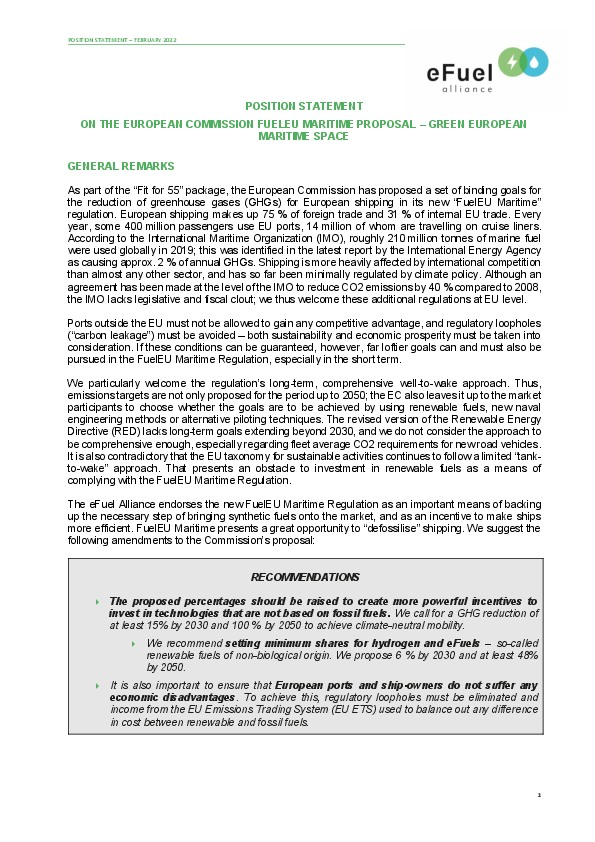Our Political demands

Openness to technology in climate protection policy.
We believe that a regulatory approach open to all technologies, and hence the promotion of synthetic liquid and gaseous fuels, is the most efficient path to reducing greenhouse gas emissions. In this way sustainability, innovation, competition and acceptance can all be reconciled.Holistic economy for hydrogen-derived products in Europe.
Through the production and use of hydrogen-based products such as eFuels, Europe can be at the forefront of global technology and thus also secure its competitiveness as a location for industry. This requires a regulatory framework and appropriate market conditions. It is the task of the European Union to guarantee a holistic approach to setting the necessary production requirements and regulatory standards, including for eFuels.Change of the energy taxation.
The positive contribution that eFuels and sustainable biofuels can make to climate protection must be taken into account in energy taxation. The tax base should be changed from volumetric basis to the carbon footprint of the energy carrier to incentivise the production of renewable fuels. If an energy tax is based on genuine environmental criteria, this invariably leads to a reduction of the energy taxation on eFuels and sustainable biofuels.Recognition of eFuels in the EU fleet targets.
Crediting the CO2-reduction contribution of eFuels and sustainable biofuels within the framework of EU fleet targets for passenger cars, light and heavy-duty vehicles is a decisive lever for achieving the climate targets in road transport. It is therefore essential that the greenhouse gas savings achieved by eFuels and sustainable biofuels are taken into account when calculating the EU CO2 fleet targets in order to create another option for achieving the transport sector’s climate targets.Strengthening international cooperation to set up global production.
With the help of eFuels, globally generated electricity from renewable energies can be used worldwide for the first time. That is because eFuels are easy to store and transport and thus create the possibility to produce and import renewable energies globally in the form of liquid and gaseous energy carriers. This makes a decisive contribution to the global energy transition by building a climate-friendly energy system that helps develop the resources of economically weaker regions.Promoting the industrial production of eFuels.
eFuel production on an industrial scale should be achieved as quickly as possible by promoting pilot projects. A market ramp-up can also be supported in the short term by tendering procedures, and commitments to volume orders, that would provide investors with added security.
Position Papers
Joint Statements
Contact us
Would you like to receive more information or would you like to join the eFuel Alliance?
Get in touch with us directly!

































